Repair cafes: 'If we can fix it, it's a good thing'
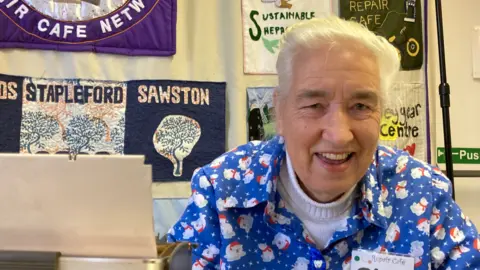 Orla Moore/BBC
Orla Moore/BBCEver since the very first repair cafe in Amsterdam opened in 2009, there has been a growing local trend to acknowledge the vast volume of material ending up in landfill.
"It's about not wasting things. Everybody needs to save money these days and it's a lovely way to meet people and learn skills," says Rachel Vollerthun, who runs a repair cafe in Cambridgeshire.
It is one of more than 3,000 repair cafes worldwide, with about 600 up and running in the UK.
The Cambridgeshire Repair Cafe Network has 45 across the county and is administered by a group called Cambridge Carbon Footprint (CCF), which has been supporting the initiative since 2014.
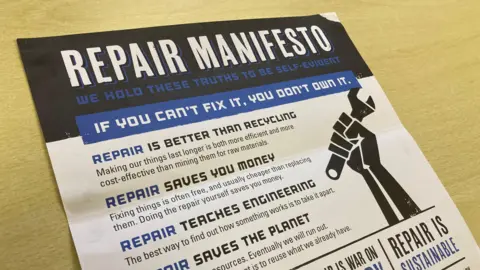
The cafes team up skilled volunteers with people who need their expertise, whether it is to sort a dodgy plug or internal wiring on a radio, or darn those beloved Christmas socks.
In 2023, Cambridgeshire Repair Cafes clocked up 7,500 volunteer hours and kept almost four tonnes of waste out of landfill.
The movement is underpinned by the "Repair Manifesto", which largely acts to encourage manufacturers to provide spare parts and repair capabilities, in a bid to diminish our throwaway culture.
'It is a feeling of togetherness'
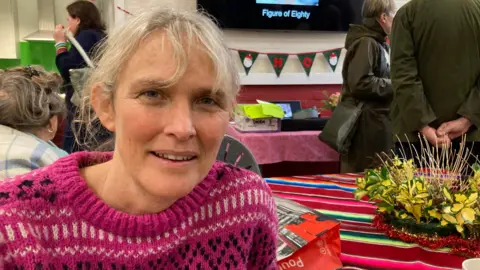
A steady stream of villagers brave a wet, wintry day to visit Swavesey's sustainability hub, which is taking shape in the Memorial Hall.
Among the stalls attracting interest are Christmas wreath-making lessons, support for hibernating hedgehogs from Shepreth Wildlife Park, and a kitchen hatch of mouth-watering cakes.
But in another room, there are magicians at work.
The Repair Cafe helps the good people of Swavesey do their bit for the planet - and their purses.
"It brings people together in a really low-key way," says Ms Vollerthun, the hub's co-ordinator.
"The main focus is sustainability, but that can take many shapes and forms.
"It reminds you of the feeling of togetherness and what is lovely about Christmas."
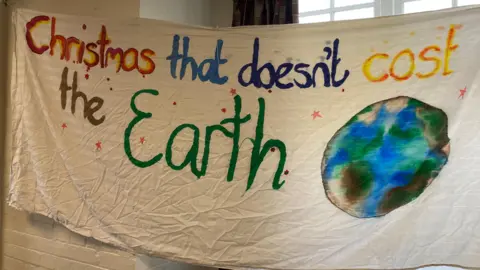
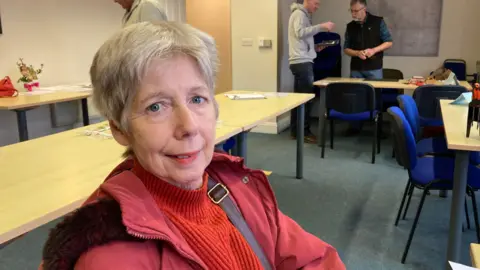
Jan Waller, 71, has brought along her 10-year-old temperamental vacuum cleaner that sometimes "just doesn't switch on".
"I saw the repair cafe advertised and thought I'd give it a go - I might as well try and get it fixed," she says.
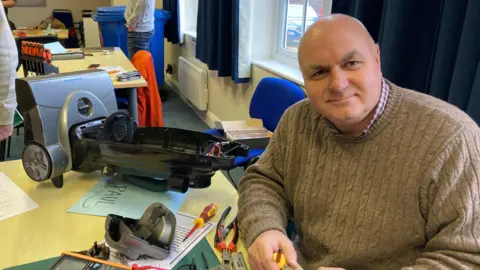
To the rescue is repairer Paul Bramall, who has taken the machine apart.
"It is the electrics - it's always difficult to know whether it's one fault or there's multiple - half the problem sometimes is reproducing the fault," he says.
"I enjoy tinkering with electrical things. I've done it all my life - fixing things, taking things apart, breaking my dad's tape recorder when I was a kid.
"Sometimes people are encouraged by seeing how things work."
'Treasured family stuff'
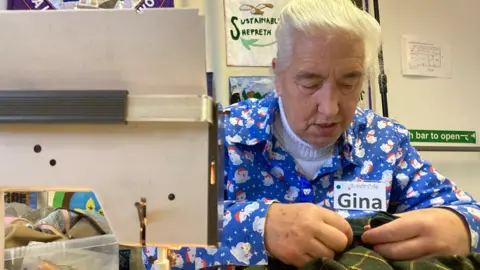
Gina Barber, 80, is a lecturer in mathematics, accountancy and business at Anglia Ruskin University.
She's also a dab hand at dressmaking.
"It's nice to get things back into use, keep them out of landfill, but you also get the treasured family stuff getting a bit decrepit," she says.
"We get dolls brought in, teddy bears without legs, all sorts.
"There's saving money, with the cost of living crisis and taxes going up but also more awareness of what we're doing to the planet and where all this waste finishes up.
"I think we fix a lot of stuff that wouldn't be taken on by a commercial enterprise."
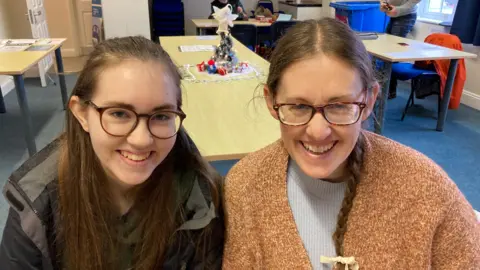
In Gina Barber's hands is a beloved woollen skirt needing an invisible zip repaired.
It belongs to Genny Silvanus, who has come along with her 16-year-old daughter Rhiannon.
"I'm getting my favourite work skirt fixed because the zip has gone. It's nice and thick - it has pockets," says her mother.
"It was either keep wearing dresses with no pockets or come and ask a nice lady like Gina to fix it for me."
Ms Barber was able to show Rhiannon how to darn the sleeve of her cardigan.
"It came undone and had split up the sleeve and Gina showed me how to sew it back," the teenager says.
"The cafe is a good idea - there's a benefit to it. We always see people we know, so you can have a chat."
"And the cake's really good," her mother adds.
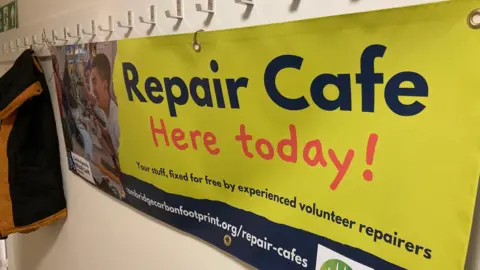
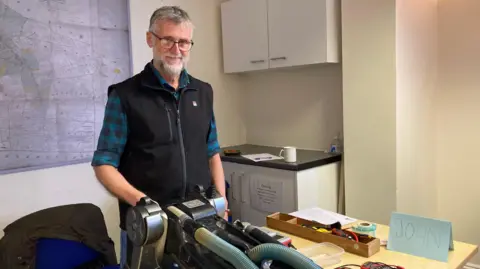
John Hallwood is carrying out a portable appliance test (Pat) on every repaired electrical item to make sure they are safe.
"A lot of us are enthusiastic amateurs," he says.
"You develop it over the years. When you're a child you take things to bits, then you learn how to put it back together - and I've been doing that for 60-odd years.
"There are bicycle repair shops, but there aren't that many of them, and it's expensive, but more importantly when it comes to things like vacuum cleaners, CD players, nobody fixes them on the High Street.
"If people find it's broken, then they invariably chuck it away," he adds.
He says Cambridge Carbon Footprint applies a "fixometer" which shows how much has been saved from landfill, the detail of which can be used to persuade manufacturers to act.
Ms Vollenthun adds: "Living in a village, it really speaks to people with traditional values, people from right across the spectrum politically - the 'make do and mend' culture, not to just immediately chuck something when you buy new."
Follow Cambridgeshire news on BBC Sounds, Facebook, Instagram and X.
